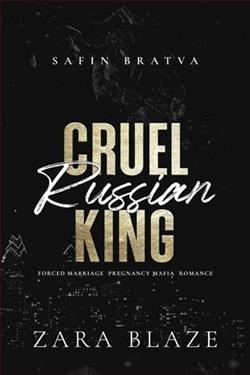Page 238 of Reaper's Gale (The Malazan Book of the Fallen 7)
‘In comparison,’ Tehol agreed, nodding. ‘Now, shall we go for a walk, old friend?’
‘Assuming your drape is now unmarred by unsightly bulges.’
‘In a moment.’
‘Master?’
Tehol smiled at the alarm on Bugg’s face. ‘I was just imaging her stuck there, wedged in Huldo’s alleyway. Unable to turn. Helpless, in fact.’
‘There it is,’ he said with a sigh, ‘you did indeed manage to sink lower.’
There was an old Gral legend that had begun to haunt Taralack Veed, although he could not quite grasp its relevance to this moment, here in Letheras, with the Lifestealer walking at his side as they pushed through the crowds milling outside a row of market stalls opposite the Quillas Canal.
The Gral were an ancient people; their tribes had dwelt in the wild hills of the First Empire, and there had been Gral companies serving in Dessimbelackis’s vaunted armies, as trackers, as skirmishers and as shock troops, although this manner of combat ill suited them. Even then, the Gral preferred their feuds, the spilling of blood in the name of personal honour. The pursuit of vengeance was a worthy cause. Slaughtering strangers made no sense and stained the soul, demanding tortured cleansing rituals. Further, there was no satisfaction in such murder.
lsquo;In comparison,’ Tehol agreed, nodding. ‘Now, shall we go for a walk, old friend?’
‘Assuming your drape is now unmarred by unsightly bulges.’
‘In a moment.’
‘Master?’
Tehol smiled at the alarm on Bugg’s face. ‘I was just imaging her stuck there, wedged in Huldo’s alleyway. Unable to turn. Helpless, in fact.’
‘There it is,’ he said with a sigh, ‘you did indeed manage to sink lower.’
There was an old Gral legend that had begun to haunt Taralack Veed, although he could not quite grasp its relevance to this moment, here in Letheras, with the Lifestealer walking at his side as they pushed through the crowds milling outside a row of market stalls opposite the Quillas Canal.
The Gral were an ancient people; their tribes had dwelt in the wild hills of the First Empire, and there had been Gral companies serving in Dessimbelackis’s vaunted armies, as trackers, as skirmishers and as shock troops, although this manner of combat ill suited them. Even then, the Gral preferred their feuds, the spilling of blood in the name of personal honour. The pursuit of vengeance was a worthy cause. Slaughtering strangers made no sense and stained the soul, demanding tortured cleansing rituals. Further, there was no satisfaction in such murder.
Two months before the Great Fall, a commander named Vorlock Duven, leading the Karasch Legion deep into the untamed wastes of the southwest, had sent her seventy-four Gral warriors into the Tasse Hills to begin a campaign of subjugation against the tribe believed to rule that forbidding range. The Gral were to incite the Tasse to battle, then withdraw, with the savages hard on their heels, to a place of ambush at the very edge of the highlands.
Leading the Gral was a wise veteran of the Bhok’ar clan named Sidilack, called by many Snaketongue after a sword-thrust into his mouth had sliced down the length of his tongue. His warriors, well blooded after a three-year campaign of conquest among the desert and plains peoples south of Ugari, were skilled at finding the hidden trails leading into the rough heights, and before long they were coming upon rude dwellings and rock shelters in the midst of ancient ruins that hinted that some terrible descent from civilization had afflicted the Tasse long ago.
At dusk on the third day seven woad-painted savages ambushed the lead scouts, killing one before being driven off. Of the four Tasse who had fallen in the clash, only one was not already dead of his wounds. The language of his pain-stricken ravings was like nothing Sidilack and his warriors had ever heard before. Beneath the dusty blue paint the Tasse were physically unlike any other nearby tribes. Tall, lithe, with strangely small hands and feet, they had elongated faces, weak chins and oversized teeth. Their eyes were close-set, the irises tawny like dried grass, the whites blistered with so many blood vessels it seemed they might well weep red tears.
Among all four of the Tasse the signs of dehydration and malnutrition were obvious, and as fighters they had been singularly ineffective with their stone-tipped spears and knotted clubs.
The wounded savage soon died.
Resuming their hunt, the Gral pushed ever deeper, ever higher into the hills. They found ancient terraces that had once held crops, the soil now lifeless, barely able to sustain dry desert scrub. They found stone-lined channels to collect rainwater that no longer came. They found stone tombs with large capstones carved into phallic shapes. On the trail potsherds and white bleached bone fragments crunched underfoot.
At noon on the fourth day the Gral came upon the settlement of the Tasse. Twelve scraggy huts, from which rushed three warriors with spears, shrieking as they lined up in a pathetic defensive line in front of five starving females and a lone two-or three-year-old female child.
Sidilack, the wise veteran who had fought twenty battles, who had stained his soul with the slaughter of countless strangers, sent his Gral forward. The battle lasted a half-dozen heartbeats. When the Tasse men fell their women attacked with their hands and teeth. When they were all dead, the lone child crouched down and hissed at them like a cat.
A sword was raised to strike her down.
It never descended. The clearing was suddenly swallowed in shadows. Seven terrible hounds emerged to surround the child, and a man appeared. His shoulders so broad as to make him seem hunched, he was wearing an ankle-length coat of blued chain, his black hair long and unbound. Cold blue eyes fixed upon Sidilack and he spoke in the language of the First Empire: ‘They were the last. I do not decry your slaughter. They lived in fear. This land-not their home-could not feed them. Abandoned by the Deragoth and their kind, they had failed in life’s struggle.’ He turned then to regard the child. ‘But this one I will take.’















